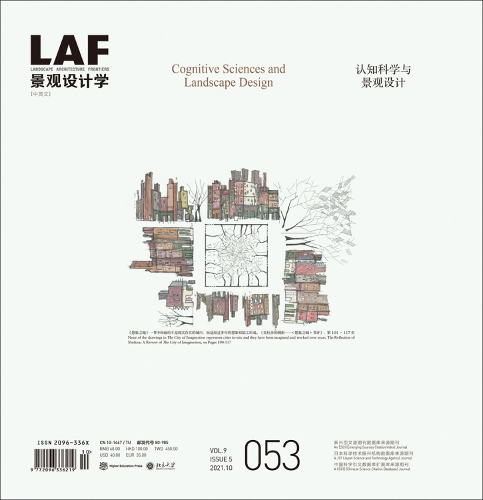
Landscape Architecture Frontiers 053: Cognitive Sciences and Landscape Design
(Paperback)
Publishing Details
Landscape Architecture Frontiers 053: Cognitive Sciences and Landscape Design
By (Author) Kongjian Yu
Oro Editions
Oro Editions
15th December 2022
United States
Classifications
General
Non Fiction
Architectural structure and design
712.019
Physical Properties
Paperback
152
Width 279mm, Height 292mm
654g
Description
Cognitive sciences that aim at establishing scientific and explicit interpretations can diversify approaches to exploring users feelings and experiences of a specific environment. For example, peoples emotions and feelings change with their environment, closely related to peoples sensory processes and brain wiring, personal experiences, and visiting purposes, etc., can be understood as a prompt intuitive response.
Environmental information and responses are processed very fast to support quick decision making in relation to peoples survival and benefits. Environmental Psychology explains the environmental types people prefer and why certain environments make people feel, for example, anxious or excited. Understanding peoples emotional responses to the environment facilitates, or nudges (a term usually used in the inter-discipline of Psychology and Behavioral Economics), users to act or make choices as desired. Moreover, research on attention in cognitive sciences can also inform designers: by controlling the spatial elements and intangible elements (such as light and sound) to minimize environmental disturbance or noise, users attention can be directed to specific elements, element combinations or series. During this process, users specific emotional memories or symbolic implications are activated, which augments desired feelings and experiences.
This issue explores the mechanism of how landscape design affects users feelings, experiences, and behaviors, as well as usability, by introducing theories, knowledge, and research methods and findings in Cognitive sciences, psychology, neurobiology, and computer science, so as to support landscape architects decision making.
Author Bio
Kongjian Yu has a Doctorate in design from the Graduate School of Design, Harvard University, he is an Honorary Foreign Fellow of the American Academy of Arts and Sciences and professor at the College of Architecture and Landscape, Peking University. Joan Iverson Nassauer is a professor at the School for Environment and Sustainability, University of Michigan. Carlo Ratti is the director of the Senseable City Lab and a professor of the practice for the Department of Urban Studies + Planning, Massachusetts Institute of Technology. Zheng Chen is an associate professor for the Department of Landscape Studies at the College of Architecture and Urban Planning, Tongji University. Tsuyoshi Honjo is a professor for the Department of Environmental Science and Landscape Architecture at the Graduate School of Horticulture, Chiba University. Yiyong Chen is an associate professor of urban planning and associate chair of landscape architecture at the School of Architecture and Urban Planning, Shenzhen University. Chongxian Chen is an associate professor and PhD supervisor at the College of Forestry and Landscape Architecture at South China Agricultural University. Albert Zhengneng Chen is a senior landscape designer of Stoss Landscape Urbanism. Xiaoqing Qin is a project manager at PLAT Studio and a guest lecturer at the Sam Fox School of Design and Visual Arts, Washington University in St. Louis.
